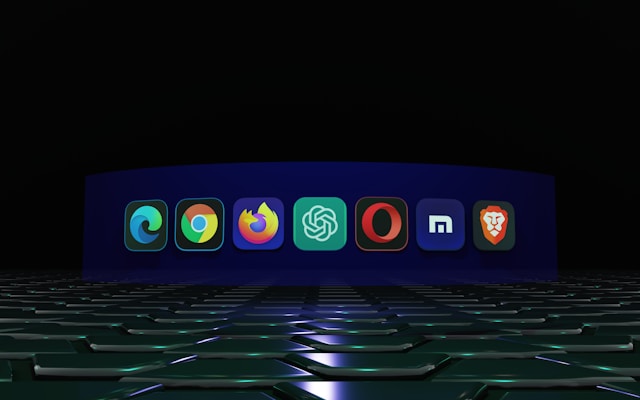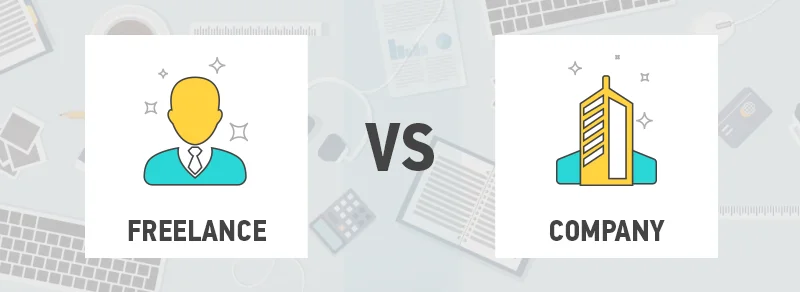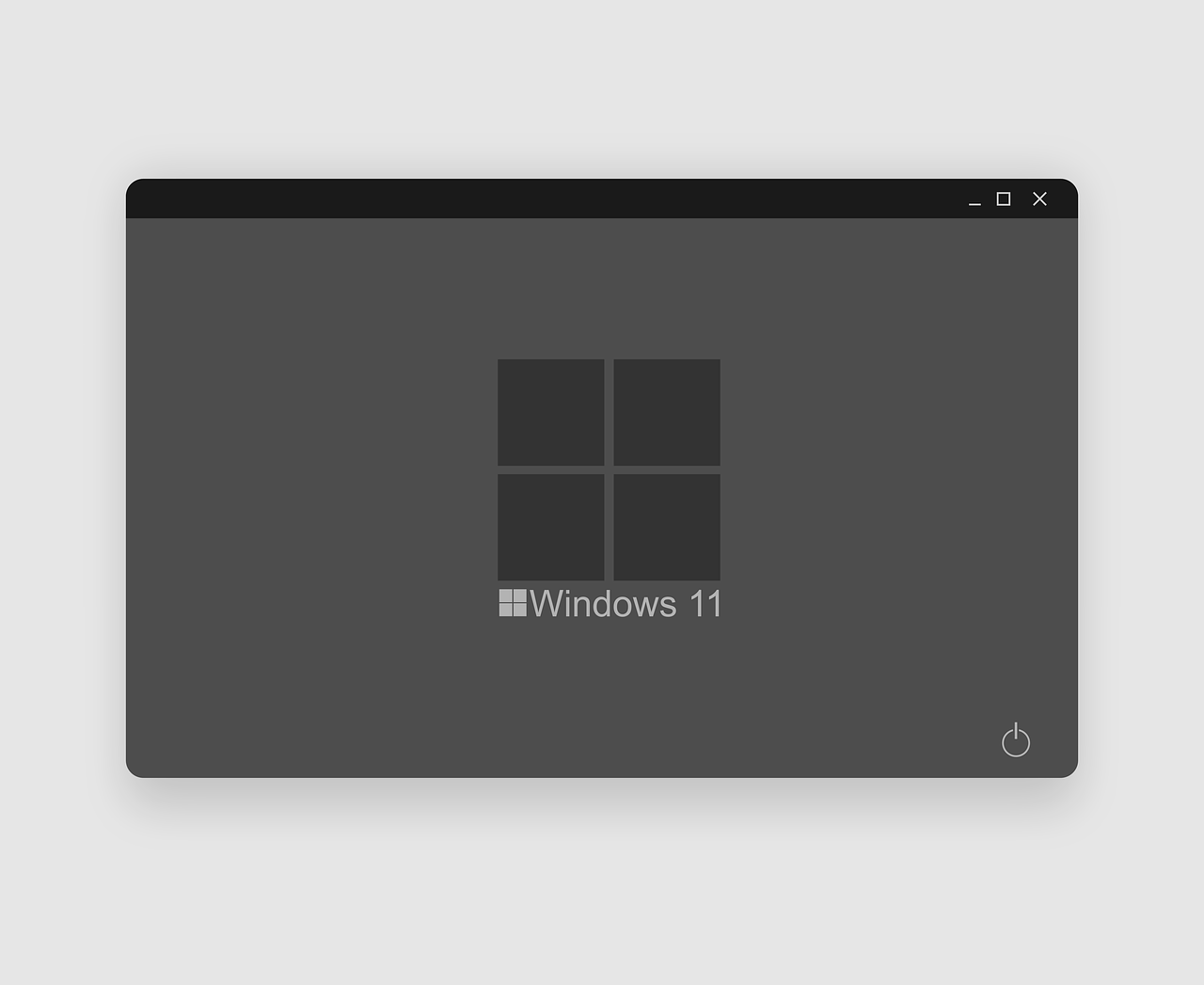Introduction: The Dawn of the Third Browser War
In the early days of the internet, browsing was a simple task — type a URL, click a few links, and explore websites. The competition back then revolved around speed, design, and ease of use. From Netscape Navigator vs Internet Explorer in the 1990s to Firefox vs Chrome in the 2000s, each era had its victor.
But in 2025, a new war has emerged — one powered by Artificial Intelligence.
This new era of competition is not about which browser loads pages faster, but which one thinks smarter. With Google’s Gemini, OpenAI’s ChatGPT Atlas, and Perplexity’s Comet AI, browsers are no longer just gateways to the web — they are becoming personal digital assistants that can search, summarize, and even act on behalf of their users.
The concept of browsing itself is evolving. We’re moving from the age of “click and explore” to the age of “ask and delegate.”
Table of Contents
The Rise of AI Browsers: From Navigation to Automation
For almost two decades, browsers like Chrome and Safari remained nearly identical in experience. You typed something in the address bar, hit enter, and landed on a webpage. But AI is turning that routine upside down.
Today’s emerging AI browsers go beyond traditional navigation. They understand context, perform multi-step actions, and even make decisions.
- Perplexity’s Comet AI Browser blends a chat-style interface with web browsing, allowing users to ask questions directly. It can read entire web pages, summarize them, and perform actions like booking appointments or sending emails.
- Opera’s Neon AI Browser introduces “Do” commands — letting the AI carry out real actions online — and “Cards,” which save workflows for repetitive tasks.
- OpenAI’s ChatGPT Atlas weaves ChatGPT directly into the browsing experience, offering a conversational interface that can answer queries, search autonomously, and perform real-time web navigation.
Each of these tools represents a shift from passive browsing to active collaboration between humans and AI.
A Shift in Paradigm: Browsing Becomes Delegation
According to George Chalhoub, an assistant professor at the UCL Interaction Centre, this transformation marks the biggest evolution since the internet began.
“For 30 years, the browser was about navigation — type, click, explore. Now it’s moving toward delegation,” he said.
Instead of manually searching, clicking, and reading, users can now simply instruct their browsers to do things for them.
Imagine asking your browser:
“Book me a flight to Dubai next Friday, find a hotel nearby, and email me the confirmation.”
The AI browser will not only search for the options but also execute the tasks across multiple websites. This is the new agentic web — where browsers are no longer tools for humans, but collaborators that can think and act.
Why Tech Giants Are Fighting for Browser Control
So, why are AI companies so eager to develop their own browsers? The answer is simple — control over the gateway to users’ digital lives.
The browser is where users spend most of their time. It’s the bridge to everything — email, shopping, social media, and productivity tools. Whoever controls the browser controls user behavior, data, and engagement.
This is why Perplexity shocked the tech world by reportedly making a $34.5 billion offer for Google Chrome earlier this year.
As Dmitry Shevelenko, Chief Business Officer at Perplexity, told Fortune:
“The browser is where we live during the day. It’s an incredibly powerful canvas — it allows us to know more about users and create greater value.”
AI companies aren’t just competing to help users browse faster — they’re building a foundation for the AI-powered internet, where your browser is your assistant, scheduler, and researcher all in one.
Google’s Challenge: Maintaining Chrome’s Dominance
Google Chrome has dominated the browser landscape for over a decade, maintaining a market share above 60%. Yet, the rise of AI-driven competitors is beginning to chip away at its dominance.
In July 2025, Google’s global search market share dropped below 90% for the first time in ten years. With users turning to AI tools like ChatGPT and Perplexity, search queries are shifting away from traditional search engines.
Still, Chrome remains central to the browsing experience. Most AI browsers, including Comet and Atlas, rely on Chromium, Google’s open-source browser engine, to function. Even Microsoft Edge switched to Chromium years ago.
Building a browser from scratch is highly complex — involving everything from rendering engines to encryption systems. As George Chalhoub explained,
“It’s literally reinventing the wheel. I don’t see any company building its browser from scratch.”
This means Google’s influence continues, even in the AI browser era — but competition is heating up fast.
The Unified Interface Dream
Many AI companies share one vision — a unified digital interface that works across all platforms.
As Himanshu Tyagi, co-founder of Sentient, puts it:
“AI is only magical when it’s everywhere with you in a single, unified interface.”
Right now, users must switch between multiple apps — one for email, another for travel, another for tasks. AI browsers aim to merge these into one continuous experience.
Imagine a browser that not only opens your email but also reads your messages, summarizes them, schedules meetings, and updates your calendar — automatically.
OpenAI is leading this direction by turning ChatGPT into a central hub that connects with third-party apps for travel, shopping, and productivity. Instead of leaving ChatGPT to open another website, you’ll be able to complete everything within the chat itself.
This unified experience is the holy grail of AI — seamless integration that saves time, reduces clicks, and understands context across devices.
Privacy and Ethical Concerns
As powerful as AI browsers are, they raise serious privacy questions. Traditional browsers already collect significant user data, but AI takes this to another level.
An AI browser doesn’t just observe your actions — it interprets them. It learns your intentions, patterns, and preferences. Every query or summary becomes another data point about you.
George Chalhoub warns:
“An AI-powered browser can infer your habits, your mood, even your intentions. That information must be handled responsibly.”
The biggest concern is transparency — where does this data go? Can it be used for advertising or profiling?
Even Sam Altman, CEO of OpenAI, admitted that ChatGPT conversations aren’t legally protected from subpoenas. This raises fears about personal and professional data being exposed.
Opera, on the other hand, claims its AI browser processes data only when requested and encrypts all communications end-to-end. Still, as AI becomes more intertwined with our online behavior, privacy frameworks must evolve.
The Future: From Browsers to Digital Co-Pilots
We are witnessing the most dramatic transformation in browsing since the internet began. The browser is no longer just a tool — it’s becoming an AI-powered co-pilot.
With ChatGPT Atlas, Google Gemini, Perplexity Comet, and Opera Neon leading the charge, the focus has shifted from displaying pages to understanding purpose.
In this new model, your browser won’t just take you to a website; it’ll accomplish what you wanted from that website.
Booking travel, reading research papers, or finding market trends — the AI browser will do it for you, while you focus on higher-level decisions.
This new era also blurs the line between chatbots and browsers. Instead of switching between tabs, users might rely on a single AI assistant integrated directly into their browser. It’s faster, more intuitive, and far more personal.
Conclusion: A Smarter, Seamless Internet
The Third Browser War has officially begun — and it’s powered by AI. The old metrics of speed and simplicity are being replaced by intelligence, context, and trust.
OpenAI’s ChatGPT Atlas, Google’s Gemini, and Perplexity’s Comet are redefining what it means to explore the web. As AI becomes the brain behind browsers, the internet is no longer just a collection of pages — it’s a space of autonomous actions and intelligent decisions.
However, success will depend on one key factor — trust.
Users will embrace AI browsers only if they feel their data is protected, their choices respected, and their experiences enhanced.
If these companies strike that balance, AI browsers will not just win the war — they’ll redefine the future of the internet itself.
Stay connected with us for more ground breaking tech updates and AI innovations.




